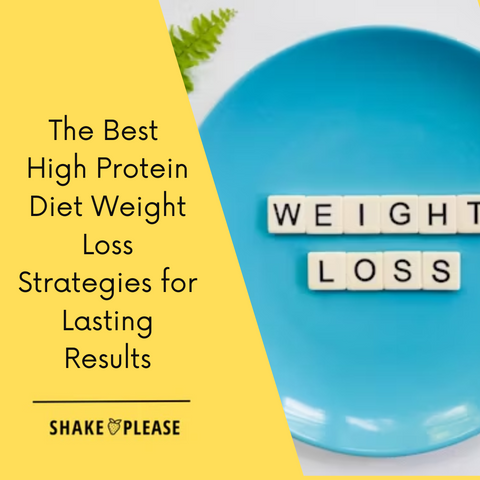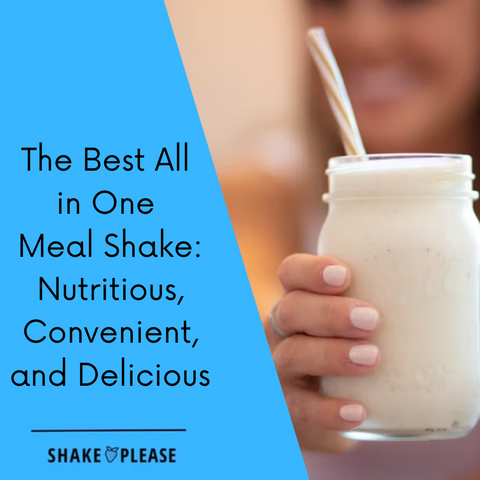Introduction to High Protein Diets
A high protein diet is widely recognized as an effective strategy for weight loss and improving overall health. Protein plays a vital role in promoting feelings of fullness, which can help reduce overall calorie consumption and prevent overeating. Beyond appetite control, protein is essential for preserving lean muscle mass during weight loss, which supports a healthy metabolism and improves body composition. Diets rich in lean protein sources—such as lean beef, poultry, fish, legumes, and dairy—have been linked to better weight management and a reduced risk of metabolic syndrome, a cluster of conditions that increase the risk of heart disease and diabetes.
While the standard recommended dietary allowance (RDA) for protein is 0.8 grams per kilogram of body weight, research suggests that increasing protein intake to 1.2–1.6 grams per kilogram can enhance fat loss while maintaining muscle mass, especially when combined with regular exercise.
Key benefits and considerations of high protein diets include:
-
Increased Satiety: Protein-rich meals help you feel fuller longer, reducing hunger and snacking between meals.
-
Muscle Preservation: Adequate protein intake supports muscle maintenance during calorie restriction, preventing loss of lean body mass.
-
Improved Metabolism: Maintaining muscle mass helps sustain a higher metabolic rate, aiding in long-term weight management.
-
Better Body Composition: High protein diets promote fat loss while preserving or increasing muscle mass, leading to a leaner physique.
-
Reduced Risk of Metabolic Syndrome: Consuming lean protein sources can improve blood sugar control, cholesterol levels, and blood pressure.
-
Flexible Protein Sources: Options include lean meats, fish, dairy, legumes, and plant-based proteins, allowing for varied and balanced meals.
-
Higher Protein Recommendations: For weight loss and muscle retention, protein intake of 1.2 to 1.6 g/kg body weight is often advised, exceeding the general RDA.
By incorporating these principles, a high protein diet can be a sustainable and effective approach to achieving lasting weight loss and improved health.
Choosing High-Protein Foods
Selecting a variety of high protein foods is a cornerstone of any effective nutrition plan, playing an essential role in appetite control, muscle maintenance, and successful weight management. A diet rich in protein helps you feel fuller for longer, reducing the likelihood of overeating.
Prioritize Nutrient-Dense and Lean Protein Sources
To maximize the benefits, it's important to include nutrient-dense options that also offer other health perks. Foods like Greek yogurt, almond butter, hemp seeds, and chia seeds not only provide protein but also healthy fats and fiber, which further increase satiety. Opting for lean protein sources, such as legumes like green peas or lean meats, is also a smart strategy as they are typically lower in saturated fat.
Ensuring a diverse intake of protein sources from both plant-based and animal-based sources is crucial. This variety helps you get all the essential amino acids your body needs for vital functions, especially muscle repair and preservation during weight loss. When your body has the building blocks it needs, it's better able to maintain lean muscle mass, which is vital for a healthy metabolism.
High-Protein Smoothie Options from Shake Please
-
Chocolate Peanut Butter Banana Protein Smoothie: This is the ultimate choice for appetite control, packing a massive 33g of complete protein and healthy fats from peanut butter to ensure sustained fullness and satisfaction.
-
Strawberry Banana Protein Smoothie: With 25g of high-quality whey protein, this smoothie is a perfect, lean option to support muscle maintenance and provide the energy you need without excess fats or calories.
-
Pineapple Berry Protein Smoothie: This blend delivers 25g of protein while also providing a rich source of vitamins and antioxidants from its colorful fruits, supporting your overall health during weight loss.
-
Vanilla Berry Protein Smoothie: A light yet satisfying option with 24g of protein, this smoothie is excellent for curbing cravings and aiding muscle recovery with the anti-inflammatory benefits of berries.
By incorporating a wide range of high protein foods and convenient supplements like Shake Please into your diet, you can effectively maintain muscle mass and promote lasting fullness, which are key to achieving long-term weight management success.
Understanding Diet-Induced Weight Loss
Diet-induced weight loss is a multifaceted process influenced by calorie intake, metabolic changes, and shifts in body composition.
-
High protein diets promote weight loss by boosting satiety hormones like GLP-1 and PYY, which help reduce appetite.
-
These diets also lower levels of ghrelin, the hormone responsible for stimulating hunger, aiding in appetite control.
-
The thermic effect of food, especially protein, increases energy expenditure as the body uses more calories to digest and metabolize protein compared to fats or carbohydrates.
By leveraging these physiological mechanisms, high protein diets can effectively support weight loss and improve body composition.
Discover the Top 5 Family Meal Kits for Effortless Home Cooking
Clinical Evidence and Mechanisms
Extensive clinical research, including randomized controlled trials, has demonstrated the effectiveness of high protein diets for weight loss and long-term weight management. These studies indicate that high protein diets not only promote weight loss but also help prevent weight regain by enhancing satiety and preserving lean muscle mass. Maintaining muscle mass is particularly important as it reduces the risk of metabolic syndrome and other related health issues.
The mechanisms behind high protein diet-induced weight loss involve increased amino acid levels that affect metabolic processes such as gluconeogenesis and ketogenesis. These metabolic changes contribute to greater feelings of fullness and elevated energy expenditure, which together support fat loss and improved body composition. Overall, clinical evidence underscores the important role high protein diets play in achieving sustainable weight loss through multiple physiological pathways.
The Role of High Protein in Weight Loss
High protein intake plays a crucial role in weight loss by helping to preserve muscle mass and enhance feelings of fullness. Consuming a high protein diet can reduce overall food intake by increasing satiety, which makes it easier to adhere to a calorie-controlled weight loss plan. While the mechanisms behind protein’s impact on weight loss are complex, substantial evidence supports its critical role in both achieving initial weight loss and maintaining those results over time. Incorporating adequate protein into your diet is therefore an important strategy for effective and sustainable weight management.
Creating a High Protein Diet Plan
Developing a detailed high protein diet plan requires careful selection of nutrient-rich foods and balanced macronutrients to effectively support weight loss, muscle maintenance, and overall health.
-
Select High-Quality Protein Sources: Incorporate a variety of lean proteins such as skinless poultry, lean cuts of beef or pork, fish (especially fatty fish like salmon for omega-3s), eggs, and low-fat dairy products like Greek yogurt and cottage cheese. These foods provide essential amino acids necessary for muscle repair and satiety.
-
Limit Refined Carbohydrates: Reduce intake of processed and refined carbs such as white bread, pastries, sugary snacks, and sweetened beverages. Instead, focus on whole, unprocessed carbohydrate sources like vegetables, legumes (beans, lentils), quinoa, brown rice, and oats, which offer fiber, vitamins, and minerals that support digestion and sustained energy.
-
Include Healthy Fats: Add sources of healthy fats such as nuts (almonds, walnuts), seeds (chia, flax, pumpkin), avocados, and extra virgin olive oil. These fats aid hormone production, improve nutrient absorption, and provide long-lasting energy, which is important for maintaining fullness and metabolic health during weight loss.
-
Balance Macronutrients in Each Meal: Aim to create meals that combine protein, healthy fats, and complex carbohydrates in appropriate portions. For example, a meal might include grilled chicken breast, a serving of quinoa, steamed broccoli, and a drizzle of olive oil. This balance helps regulate blood sugar, supports muscle preservation, and keeps hunger at bay.
-
Plan Meal Timing and Portions: Distribute protein intake evenly across meals and snacks throughout the day to maximize muscle protein synthesis and maintain energy levels. Use portion control to avoid overeating, focusing on nutrient density rather than calorie quantity alone.
-
Stay Hydrated and Monitor Progress: Drink plenty of water to support metabolism and digestion. Regularly assess your progress and adjust your diet plan as needed to ensure it aligns with your weight loss and health goals.
By thoughtfully combining these elements, a high protein diet plan can be both effective and sustainable, promoting fat loss while preserving lean muscle and enhancing overall well-being.
Tips for Success on a High Protein Diet
Achieving success on a high protein diet requires attention to protein intake, lifestyle habits, and ongoing progress monitoring.
-
Consume Adequate Protein: Aim for around 1.6 grams of protein per kilogram of body weight daily to support muscle maintenance and promote satiety.
-
Diversify Protein Sources: Include a variety of protein-rich foods such as lean meats, fish, dairy, legumes, and plant-based proteins to ensure a complete amino acid profile and prevent dietary boredom.
-
Stay Hydrated: Drink plenty of water throughout the day to support metabolism, digestion, and overall health.
-
Incorporate Regular Exercise: Combine your diet with consistent physical activity, including strength training and cardiovascular exercise, to enhance fat loss and muscle preservation.
-
Track Your Progress: Monitor changes in weight, body composition, and energy levels to assess the effectiveness of your diet and make necessary adjustments.
-
Be Flexible and Patient: Allow room for occasional treats and adapt your plan as needed to maintain long-term adherence and avoid burnout.
Following these tips can help you maximize the benefits of a high protein diet and achieve sustainable weight loss and improved health.
How Replacing Two Meals with Protein Shakes Can Transform Your Health
Potential Risks and Side Effects
While high protein diets offer numerous benefits, they may also pose potential risks and side effects, particularly for individuals with pre-existing health conditions. Excessive protein intake can place strain on kidney function and increase the risk of kidney stones, especially in those with underlying kidney issues. Therefore, it is essential to consult a healthcare professional before beginning a high protein diet, particularly if you have medical concerns such as kidney disease or diabetes. To reduce these risks, it is advisable to focus on lean protein sources like poultry, fish, and plant-based options, which are generally easier on the kidneys.
Understanding Clinical Evidence for Weight Loss
Extensive clinical research supports the effectiveness of high protein diets for weight loss, with numerous studies demonstrating their benefits. Evidence shows that high protein diets can lead to significant reductions in body weight and improvements in body composition, especially when paired with regular physical activity. By understanding this clinical evidence, you can make informed decisions about your diet and lifestyle, optimizing your approach to achieve sustainable weight loss and better overall health.
The Importance of Body Composition
Body composition plays a vital role in overall health, as excess body fat is associated with an increased risk of chronic diseases like heart disease, diabetes, and metabolic syndrome. High protein diets contribute to improving body composition by promoting muscle growth and preserving lean muscle mass while facilitating fat loss. Maintaining a healthy balance between muscle and fat is essential not only for physical appearance but also for metabolic health, mobility, and long-term well-being. Prioritizing body composition through nutrition and exercise supports a healthier, more resilient body.
Achieving Lasting Weight Loss Results
Sustainable weight loss requires a comprehensive approach that combines diet, exercise, and support.
-
Commit to a balanced diet and regular physical activity as the foundation for long-term weight management.
-
Use high protein diets to enhance satiety and preserve muscle mass, but integrate them within a broader healthy lifestyle.
-
Set realistic and achievable weight loss goals to maintain motivation and track progress effectively.
-
Seek guidance and support from healthcare professionals or registered dietitians for personalized advice and accountability.
-
Focus on gradual, consistent changes rather than quick fixes to promote lasting results and overall well-being.
Adopting these strategies increases the chances of maintaining weight loss and improving health over the long term.
Maintaining a Healthy Lifestyle
Maintaining a healthy lifestyle is fundamental to overall health and well-being, with balanced nutrition and consistent exercise as key components.
-
Emphasize a balanced diet that includes a variety of whole, unprocessed foods to provide essential nutrients.
-
Incorporate high protein diets as part of your nutrition plan to support muscle health and satiety.
-
Engage in regular physical activity to enhance cardiovascular health, strength, and metabolic function.
-
Adopt healthy habits that reduce the risk of chronic diseases such as heart disease, diabetes, and obesity.
-
Prioritize overall quality of life by managing stress, getting adequate sleep, and staying hydrated.
Combining these elements creates a sustainable foundation for long-term health and vitality.
Conclusion
High protein diets offer a powerful and effective approach to weight loss and overall health improvement, providing benefits such as increased satiety and preservation of muscle mass. Success on a high protein diet depends on selecting a variety of quality protein sources, understanding the mechanisms behind diet-induced weight loss, and creating a balanced, nutrient-rich meal plan. It is important to consult with a healthcare professional before beginning any high protein regimen, especially if you have underlying health conditions. Combining a high protein diet with a healthy lifestyle—including regular exercise, adequate hydration, and whole, unprocessed foods—supports sustainable weight loss and long-term well-being. Prioritizing these elements will help you achieve lasting results and improve your overall quality of life.






